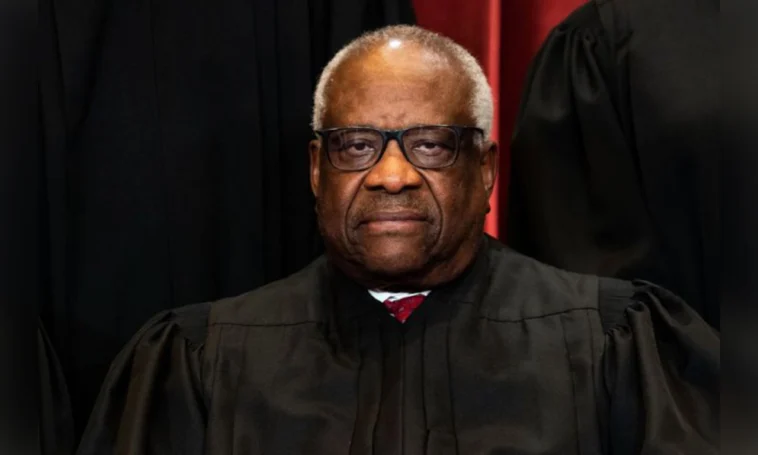Clarence Thomas Questions the Validity of Supreme Court’s Brown v. Board of Education Decision. The US Supreme Court’s recent decision to uphold a congressional map in South Carolina that was previously ruled to be an unconstitutional racial gerrymander is a stark reminder of the ongoing struggle for racial justice in the United States. The 6-3 decision, split along ideological lines, allows the map to stand despite its intentional dilution of Black voting power.
Justice Samuel Alito’s argument that the lawmakers who drew the map should be given the “presumption of good faith” is a thinly veiled attempt to ignore the map’s harmful effects on Black voters. This stance is particularly galling given the long history of systemic racism in the United States, which has consistently disenfranchised and marginalized Black communities.
Justice Clarence Thomas’s opinion is even more egregious, as he suggests that the Supreme Court overreached its authority in the landmark Brown v. Board of Education decision, which ruled racial segregation in schools unconstitutional. This decision was a critical milestone in the Civil Rights Movement, and Thomas’s attempt to undermine its legitimacy is a slap in the face to the countless individuals who fought and died for racial equality.
Those remedies came through “extravagant uses of judicial power” to end racial segregation in the 1950s and 60s, Thomas wrote.
Thomas’s position is particularly hypocritical given his own history as a beneficiary of affirmative action policies. He has consistently taken positions that undermine civil rights protections, including voting to protect racial gerrymandering initiatives and advocating for the reversal of decisions establishing marriage equality and contraceptive rights.
Thomas’s dedication to undoing the legacy of his predecessor, Thurgood Marshall, is a sad and harmful development in the ongoing struggle for racial justice in the United States. Marshall was a champion of civil rights, and his work on the Brown v. Board of Education case was instrumental in dismantling the legal framework of segregation. Thomas’s attempts to undermine this legacy are a betrayal of the trust placed in him as a Supreme Court Justice.
The Supreme Court’s decision to uphold the congressional map in South Carolina is not just a legal ruling – it has real-world consequences for the Black communities who will be disenfranchised by this map. It is a reminder that the fight for racial justice is far from over, and that the Supreme Court remains a critical battleground in this struggle.
The decision is also a stark reminder of the political polarization that has come to define the Supreme Court. The 6-3 decision, split along ideological lines, is a clear indication that the Court is more interested in advancing a political agenda than in upholding the principles of justice and equality.
In the end, the Supreme Court’s decision to uphold the congressional map in South Carolina is a disappointment, but not a surprise. It is a reminder that the struggle for racial justice is ongoing, and that we must continue to fight for a society that values equality and justice for all. We must hold our elected officials accountable for their actions, and demand that they prioritize the rights and dignity of all citizens, regardless of race or ethnicity. Only through collective action and a commitment to justice can we hope to build a better future for all.






One Comment
Leave a ReplyOne Ping
Pingback:Clarence Thomas Discloses 2019 Trips Funded by Friend and GOP Donor Harlan Crow - Hard Knock News
Join the Community and Be a Part of the Conversation
You must be logged in or registered to post a comment.